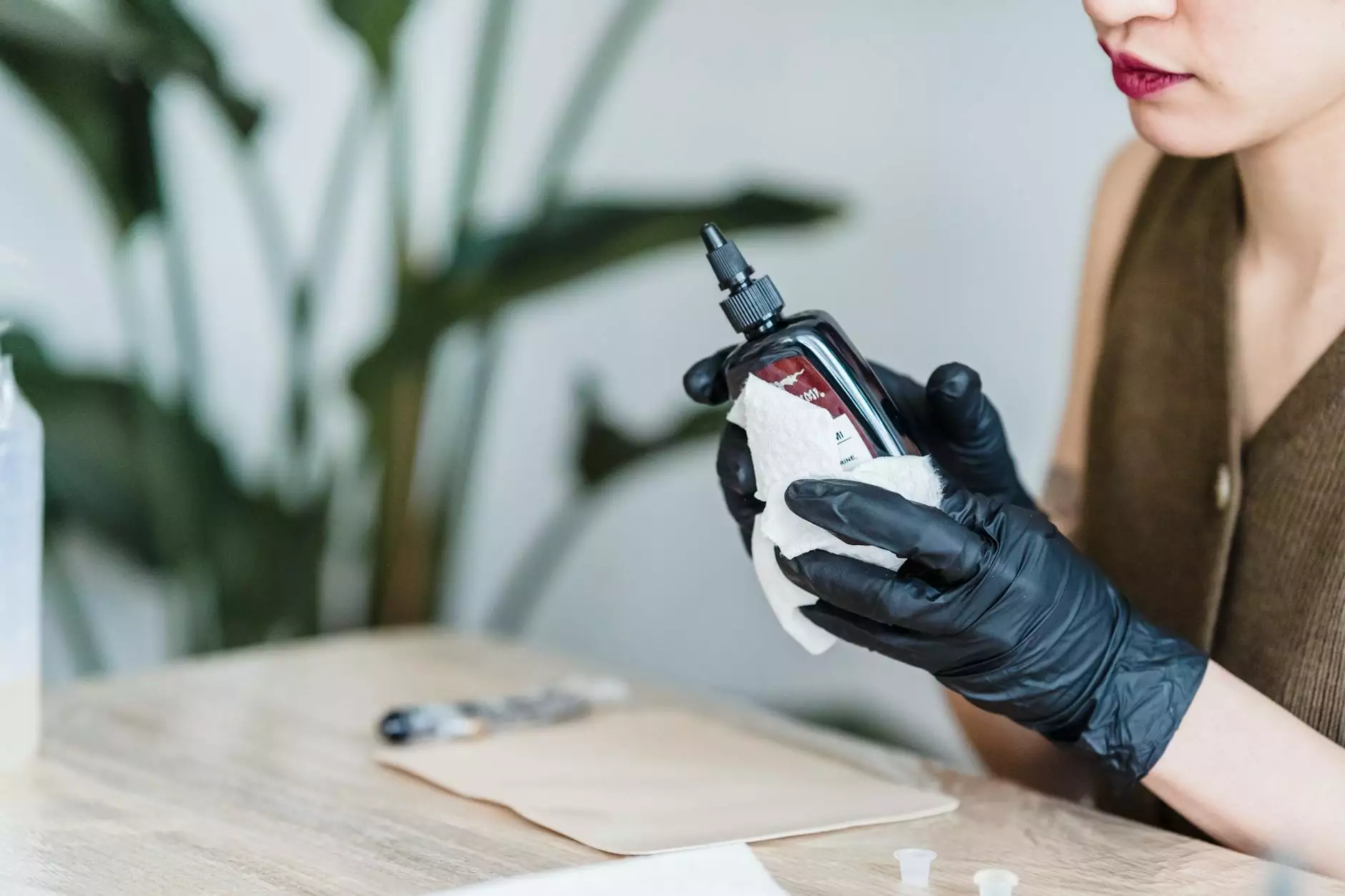Mobile Central Sterile Processing Unit: Revolutionizing Healthcare

The mobile central sterile processing unit (MCSPU) is a groundbreaking innovation in the healthcare sector, offering significant advantages in the way medical facilities manage their sterilization processes. Hospitals and outpatient surgical centers are increasingly turning to mobile solutions to optimize their operational efficiency, safety, and patient care. This article explores the myriad benefits, implementation strategies, and future prospects of mobile central sterile processing units.
Understanding Mobile Central Sterile Processing Units
A mobile central sterile processing unit is essentially a fully equipped, transportable facility designed to centralize and enhance the sterilization process of medical instruments and devices. Unlike traditional sterile processing departments, which are fixed within a hospital, mobile units bring the infrastructure closer to where procedures take place, significantly reducing the time and logistics involved in instrument handling.
Key Features of Mobile Central Sterile Processing Units
Mobile units come with several key features that make them an attractive option for healthcare facilities:
- All-in-One Sterilization Systems: MCSPUs are equipped with steam sterilizers, washers, and dryers, providing a complete solution for instrument sterilization.
- Enhanced Mobility: Their design allows for easy transportation between facilities or different departments within a hospital, ensuring timely sterilization services.
- Space Efficiency: These units take up less space compared to traditional sterile processing departments, freeing up valuable real estate in healthcare facilities.
- Customizable Configurations: Mobile units can be specially tailored to meet the unique needs of different medical specialties.
Benefits of Mobile Central Sterile Processing Units
1. Improve Operational Efficiency
The integration of a mobile central sterile processing unit into the healthcare ecosystem can significantly streamline operational workflows. By transporting the sterilization process closer to the operating room, healthcare providers can minimize delays caused by instrument transportation. This proximity allows for quicker turnaround times, which is crucial in high-pressure environments such as surgery, where every second counts.
2. Enhanced Patient Safety
Ensuring the highest standards of sterilization is critical for patient safety. Mobile units employ advanced sterilization technology that adheres to stringent safety protocols, reducing the risk of infection. With the capability of processing instruments on-site, healthcare facilities can maintain maximum sterility for surgical tools, ultimately leading to better patient outcomes.
3. Cost-Effectiveness
Investing in a mobile central sterile processing unit can lead to significant cost savings for healthcare facilities. By reducing the need for extensive physical infrastructure and personnel dedicated solely to sterilization processes, facilities can allocate resources more efficiently. Additionally, with faster processing times, facilities can increase the volume of procedures, further enhancing their profitability.
4. Flexibility and Scalability
Mobile units offer unparalleled flexibility, easily adapting to fluctuating patient loads and surgical demands. Hospitals can scale their sterile processing capabilities up or down depending on seasonal needs, events, or unexpected surges in patient volume. This adaptability is particularly invaluable in emergency situations or public health crises.
Implementation Strategies for Mobile Central Sterile Processing Units
Implementing a mobile central sterile processing unit requires careful planning and execution to maximize its potential benefits. Here are key strategies for successful implementation:
1. Assessing Needs and Capabilities
Before introducing a mobile unit, healthcare facilities must conduct a thorough assessment of their sterilization needs and existing infrastructure. This assessment should consider factors such as:
- Types of surgical procedures performed
- Volume of instruments requiring sterilization
- Logistical considerations related to transport and access
2. Collaborating with Manufacturers
Choosing the right mobile central sterile processing unit involves collaborating with reputable manufacturers who understand the nuances of sterile processing in healthcare. Facilities should focus on vendors that offer high-quality equipment, reliable service, and ongoing support to ensure optimal performance.
3. Training Personnel
Successful implementation hinges on adequate training for all personnel involved in the sterile processing workflow. Staff must be proficient in operating the mobile unit, understanding sterilization protocols, and maintaining compliance with regulatory standards. Continuous education and hands-on training are essential to ensure a high level of competence and confidence among personnel.
Future Prospects of Mobile Central Sterile Processing Units
The future of healthcare is undeniably leaning towards mobility and convenience, making the adoption of mobile central sterile processing units increasingly prevalent. As technology advances and the demand for efficient healthcare solutions rises, we can anticipate several trends and innovations in this field.
1. Integration with Telemedicine
As telemedicine continues to evolve, integrating mobile sterile processing units with telehealth platforms may enhance service delivery. Remote monitoring and diagnostics can offer real-time updates on sterilization cycles, potentially revolutionizing the management of mobile units and making them even more efficient.
2. Enhanced Technological Features
Future mobile units are likely to incorporate advanced technological features such as IoT-enabled systems that track and report sterilization statuses automatically. This level of connectivity can improve compliance and offer greater transparency in the sterilization process, further elevating the quality of care.
3. Increased Emphasis on Sustainability
With a rising focus on sustainability in healthcare, mobile central sterile processing units could evolve to adopt eco-friendly practices. This may include implementing energy-efficient technology and sustainable materials in the construction of mobile units, aligning with the growing demand for environmentally responsible healthcare solutions.
Conclusion
In summary, the mobile central sterile processing unit represents a significant leap forward in enhancing the efficiency and safety of sterile processing in healthcare. By reducing turnaround times, maximizing space efficiency, and ensuring high patient safety levels, mobile sterile processing units are poised to play an essential role in the future of medical care. As healthcare facilities explore the potential of these innovative solutions, they will not only improve their operational workflows but also contribute to better patient outcomes and greater overall satisfaction.
For medical centers, doctors, and healthcare providers looking to harness the advantages of mobility in sterilization processes, investing in a mobile central sterile processing unit may be one of the best decisions in the realm of healthcare technology today. The future is mobile, and the healthcare industry stands to gain immensely from this evolution.



